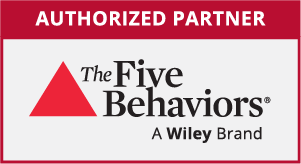AI-Powered Leadership Lab
Ethical Course Assistant and Executive Board Simulation
As submitted for the EDUCAUSE 2025 Horizon Report | Data and Analytics Edition, under the AI-Powered Assistants exemplar category, this page expands on the submission. This faculty undertaking is shared here not only to support those assessing report submissions, but also to benefit the broader public, cross-pollinate ideas, gather feedback, and serve anyone looking to replicate or build on these concepts within their own institution or discipline.
Overview
The AI-Powered Leadership Lab is an innovative integration of two custom-built AI assistants designed for EDUD 732: Leadership for Transformational Change & Innovation, a core course in the interdisciplinary leadership doctoral program at Texas Lutheran University. Together, the two AI-powered assistants model responsible AI use, strengthen academic integrity, and enhance graduate-level experiential learning.
Meet the Assistants
- Change Agent 007: An ethics-bound academic assistant that clarifies course content, guides APA standards, and promotes wellness—without generating any student work.
- The Executive Board: A simulation that challenges students to defend strategic change proposals in a realistic, high-stakes role-play environment.
These tools work in tandem to prepare doctoral students for both the academic rigor and professional demands of transformational leadership. More details below.
Thinking About Transferability
Any institution can adapt this model by replacing course-specific documents, citation standards, and leadership frameworks with those relevant to its programs. The concept works across fields—business, healthcare, engineering, teacher education—by swapping in discipline-specific resources and professional standards.

Change Agent 007 Headquarters
Try Change Agent 007 Headquarters: Launch Change Agent 007
Mission: Support doctoral students in navigating course requirements while upholding academic integrity and promoting independent thinking.
Core Functions:
- Clarify course content using only approved institutional documents.
- Provide APA citation, formatting, and bias-free language guidance.
- Integrate wellness and self-care reminders into every interaction.
- Enforce strict “no content generation” and “no proposal guidance” rules to protect academic integrity.
Why It Matters:
In an era when AI misuse is a growing concern, Change Agent 007 demonstrates that AI can support academic success without replacing authentic student work. It serves as a model for ethical, institution-specific AI integration in higher education.
Thinking About Transferability: In other disciplines, the assistant could reference style guides such as MLA, Chicago, or AMA. It could also integrate discipline-specific writing conventions (e.g., case briefs for law, patient care reports for nursing) while maintaining institution-specific ethics policies.

The Executive Board Simulation
Try The Executive Board Simulation: Launch The Executive Board
Mission: Prepare doctoral students to defend their Transformational Change Project (TCP) proposals before a simulated executive board for approval and funding.
Core Functions:
- Role-play as a formal executive board, using a mix of general and role-specific questioning (CFO, Provost, etc.).
- Challenge students with targeted, evidence-based questions aligned to leadership theory and the Bryson & George Strategy Change Cycle.
- Provide constructive feedback, scoring, and a final decision (approval, delay, denial).
- Build student confidence in high-pressure, real-world presentation scenarios.
Why It Matters:
Simulations create authentic, safe spaces for skill-building. This tool bridges theory and practice, ensuring students are prepared for the strategic, political, and operational realities of organizational change leadership.
Thinking About Transferability: Any program requiring oral defenses, project pitches, or client presentations could adapt this simulation. For example:
- Business schools: Venture capital pitch simulations.
- Engineering programs: Technical design review boards.
- Nursing and healthcare: Case study presentations to clinical panels.
- Public policy: Legislative committee hearings.
Change Agent 007 –
Rationale
The Problem
The Change Agent 007 assistant was created in response to a dual challenge in doctoral education: the need for clear, consistent academic guidance and the growing concern over AI misuse in student work. Many graduate students struggle with interpreting institutional writing standards, citation formats, and academic integrity policies, especially in interdisciplinary programs. At the same time, faculty are under increasing pressure to safeguard originality without stifling innovation.
The Solution
By embedding only institution-approved resources, ethical boundaries, and mental wellness prompts, Change Agent 007 offers a compliance-focused yet supportive environment. This approach not only models ethical AI use but also fosters independent thinking and scholarly confidence, making it replicable in any academic discipline with discipline-specific guidelines.
The Executive Board –
Rationale
The Problem
The Executive Board assistant was designed to fill a critical gap between academic theory and the high-stakes, real-world presentation skills doctoral students need. Many leadership programs prepare students to design strategic plans but not necessarily to defend them before decision-makers.
The Solution
This simulation creates a psychologically safe yet rigorous environment where students experience the scrutiny, questioning, and negotiation common in executive and stakeholder meetings. Because the structure relies on a defined strategy cycle and adaptable question frameworks, it can be implemented in any program that requires oral defenses, competitive pitches, or formal review processes—from engineering capstones to legislative testimony.
Want to take an "under the hood" peek at how these AI-powered assistants were built?
While this page focuses on what the AI-Powered Leadership Lab does, I’m happy to share the de-personalized details on how I built Change Agent 007 and The Executive Board—including the source files, technical setup, and all related considerations.
This dual-assistant framework is highly adaptable for any discipline. By swapping in program-specific documents, policies, and evaluation rubrics, institutions can:
- Use the compliance-focused assistant for writing and ethical use guidance.
- Adapt the simulation for capstone defenses, grant pitches, or professional presentations.
If you’d like to explore the build process, adapt the concept for your own program, or have me talk to your team, simply jump to the Call to Action section at the bottom of this page. I can walk you through:
- Selecting and preparing source materials.
- Writing clear, ethics-focused model instructions.
- Testing and refining interaction patterns.
- Configuring actions, capabilities, and privacy settings.
- Related strategic, operational, and tactical considerations.
Educational Impact
The AI-Powered Leadership Lab enhances doctoral education by:
- Strengthening academic integrity through clear ethical boundaries.
- Building transferable skills in communication, strategic thinking, and decision-making.
- Personalizing support while respecting privacy and institutional values.
- Scaling easily for other programs and disciplines.
Thinking About Transferability
Institutions with capstone projects, research symposia, or practicum evaluations can embed these AI models into their assessment process to give students formative, low-stakes practice before formal evaluation.
Innovation
The Lab represents a new model of AI integration in higher education:
- Pairs two specialized assistants for a holistic academic + professional readiness experience.
- Embeds institutional policies and leadership frameworks into every interaction.
- Moves beyond content generation to context-specific, ethically governed engagement.
Thinking About Transferability
The two-assistant structure can be replicated in any domain where students need both guided academic support and realistic practice simulations—whether preparing for a thesis defense, a courtroom trial, a medical simulation, or a technical project showcase.
Call to Action
Bring the AI-Powered Leadership Lab model to your program—or help shape its next evolution. I'm inviting the following constituencies to connect as we expand and adapt these practices:
- Institutions seeking custom-built AI assistants for academic integrity, compliance, skill-building, or program-specific support.
- Faculty & program directors interested in piloting or co-developing discipline-specific versions.
- Higher ed innovators exploring AI policy training, governance frameworks, and responsible AI adoption strategies.
- Organizational leaders considering AI automation for academic or operational workflows.
- Students willing to test new simulation scenarios and provide feedback.
Share Your Ideas
Two minds are better than one. So, colleagues, innovators, and students, please use the form below to share feedback about the AI-Powered Leadership Lab.
- Questions – Anything you’d like to know about the Lab, its purpose, or how it was built.
- Comments – Feedback on what works well and what could make the Lab even more effective or engaging.
- Suggestions – Ideas for new chatbots or AI automations that could benefit higher education—whether for teaching, student support, research, or administrative operations.
Your input will help ensure these tools not only meet today’s needs but also anticipate tomorrow’s challenges and opportunities. Use the form below to share what’s on your mind.


